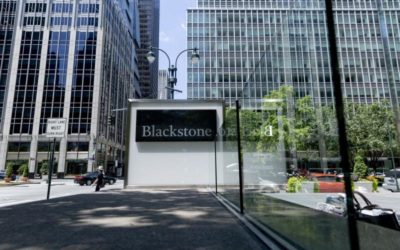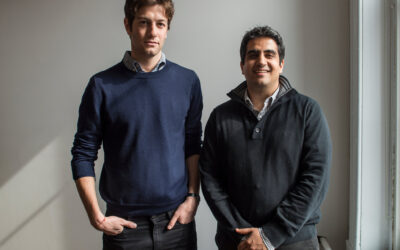The Covid-19 pandemic has been a black swan event that has created chaos for businesses around the world. One of the only certainties to have emerged from the crisis for private equity investors is the importance of having a defensive and sustainable portfolio to successfully navigate the turmoil – but the pandemic has redefined how the private equity industry should view these qualities.
Unexpected events such as the virus are a real test of a company’s defensibility. For many LPs, the impact of the current pandemic on their portfolios remains unclear, as first quarter valuations only reflected the pandemic’s initial impact and second quarter valuations reveal a more accurate but still incomplete picture.
The lack of clarity in the market can make LPs’ lives difficult – how can investors judge to what extent their underlying portfolios are able to weather the storm, and how can they select managers that can perform throughout cycles?
While the assumption is often that every business has been negatively affected by the current crisis, this is not the case. The reality is that truly defensive, sustainable businesses with multiple levers for transformation are able not only to navigate these turbulent times, but also to perform well regardless of what is happening in the wider world.
Buzzword danger
But what is meant by defensibility, sustainability and transformation? Many investors have found to their chagrin during previous market downturns that their supposedly defensive portfolios were not as protected as they may have thought, while “sustainability” and “transformation” are in danger of becoming buzzwords.
We would define a defensive portfolio as one where the underlying companies are protected against downturns by providing indispensable products or services, by fulfilling a fundamental need for society or the environment, and thus having an indispensable positive impact.
These mission-critical businesses – waste management, emergency response services or important telecoms infrastructure, to name a few – often also benefit from stable regulation and operate in areas that enjoy low cyclicality and high barriers to entry, meaning they are well-placed to perform strongly despite market uncertainty.
But it is not just downside protection that helps make a defensive investment. Another important driver of defensibility is the scale of transformation potential that a company has. When considering a company, is there the potential to keep the unique core of what makes the business special, but improve everything else around it to unlock its latent strategic value?
Businesses with multiple possible levers for transformation – such as scope to strengthen management, drive increased quality, pursue technology or product expansion, or boost geographical footprint – can be more defensive in a downturn, as they are able to respond dynamically to any bumps in the road and to continue to grow throughout risk events like Covid-19.
The GP’s prior experience of supporting successful multi-dimensional business transformations is also key because this knowledge will help them to be able to pull the value creation levers that are most applicable to the specific company and sector at hand, even through a downturn.
Sustainability is an important, related concept too, but one which has become blurred due to the various definitions investment firms use. But any definition of sustainability should look to a company’s “fundamental purpose”, that is why it exists. A company’s fundamental purpose is crucial to its ability to last. If this purpose is mission-critical in nature, then the company will be even more resilient, because no matter what is happening in the world, businesses that cater for human or planetary requirements will always be needed.
Furthermore, if shareholder value is created in alignment with this fundamental purpose, then that shareholder value is also sustainable, as it is well protected not only against market changes but also against shifts in public sentiment, political agendas and the regulatory environment.
Deserve to exist
What investors should think about when considering whether a portfolio is truly sustainable and defensive is not “Will these companies exist in 10 years?”, but, “Do these companies deserve to exist in 10 years?”. Those that do will, all other things being equal, tend to be better positioned to flourish in any stage of the economic cycle, particularly if they have multiple avenues for business transformation too.
Aside from the added defensibility that such sustainable businesses can offer, investing in this way can also create alignments of interests that drive value beyond the financial. For example, if a private equity firm is backing a company that has a fundamental purpose that benefits society, or the environment, then growing that business and improving its quality will not only create strong returns for investors, it will also create societal and planetary value too.
Although the future is far from certain right now – which will make selecting reliable, quality fund managers only harder for LPs – it remains important that investors focus on their GPs’ ability to build truly defensive portfolios, to undertake multi-dimensional business transformations, and to deliver sustainable growth.
As the Covid-19 pandemic will no doubt show, when the tide changes, those private equity portfolios that have been built to last will not only be more resilient against market downturns, but will also continue to outperform throughout periods of uncertainty.
Source: Private Equity News
Can’t stop reading? Read more
US Pipeline Operator ONEOK Inks Two Deals for $5.9 Billion
US pipeline operator ONEOK Inc. agreed to buy a Permian Basin rival and a controlling stake in...
Blackstone Is Said to Seek A$5.5 Billion Loan for AirTrunk Bid
Private equity firm Blackstone Inc. is in discussions with banks for a five-year loan of about...
Thrive Capital to lead multi-billion dollar OpenAI investment round at $100bn valuation
OpenAI, the company behind the popular AI tool ChatGPT, is in advanced talks to secure several...




